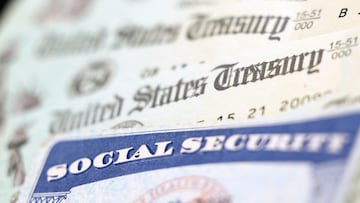Attention Social Security beneficiaries: How to spot and avoid scams tied to the 2026 COLA
The Social Security Administration will be announcing the annual COLA increase to benefits in October and scammers are gearing up to try to take you money.

Every year the Social Security Administration (SSA) announces its cost-of-living adjustment (COLA) in October to keep benefits from losing purchasing power because of inflation. This annual increase is automatically applied to benefits but that doesn’t stop scammers from trying their darndest to use the moment to steal recipients’ money and personal information.
The Better Business Bureau (BBB) put out a warning of red flags that Social Security recipients and their loved ones should be on the lookout for.
Keep an eye out for these Social Security COLA scams
Typically, scammers will contact you by phone, text or email claiming to be a “Social Security Administration representative.” Remember that the COLA increase is automatically applied to benefits, so Social Security beneficiaries do not need to do anything and this brings us to the first red flag.
Anyone who contacts you telling you that you must apply for the COLA increase, is a scammer. You will often be told to go to a website and open up a link.
“If you receive a suspicious message, do not click on any links or attachments,” warns the SSA.
You should know that the SSA may contact you by email to provide you with information or follow up on a in-person meeting. Phone calls are typically for business purposes such as you recently applied for benefits, are receiving payments and your record needs to be updated or you have requested a phone call.
“If there is a problem with your Social Security number or record, we will typically mail you a letter,” states the SSA. Representatives will never make threats or arrest or legal action nor suspension of your Social Security number, demand payment or ask for personal details or banking information.
Anyone asking you to send payment via gift card, pre-paid debit card, internet currency, or mail or wire cash, is not with the SSA.
With a my Social Security account, you can access SSA services online!
— Social Security (@SocialSecurity) September 19, 2025
✅Request a replacement Social Security card
✅Receive personalized retirement benefit estimates
✅Access your 1099 forms
✅Set up your direct deposit
JOIN TODAY: https://t.co/LtdqZDMVEp pic.twitter.com/ERPqnXm9uP
In a scam alert notice from the SSA this summer, the agency advises people who receive suspicious communications: “Do not take immediate action. If you receive a communication that causes a strong emotional response, take a deep breath. Hang up or ignore the message. Talk to someone you trust.”
The agency also says to “be skeptical” as “scammers can create fake numbers and identities. Do not trust your caller ID.”
Likewise, if you are contacted by someone claiming to be from the government or law enforcement informing you of a problem that you do not recognize or an unsolicited offer “do not provide your personal information, even if the caller has some of your information.”
The BBB recommends that “when in doubt, hang up.” It’s better to be safe than sorry if you think you may be getting scammed. You can confirm that the correspondence is legitimate by calling the SSA at 1-800-772-1213 or visiting the agency’s webpage SSA.gov.
If you are the victim of fraud the Federal Trade Commission asks that you report it to them at ReportFraud.ftc.gov.
Related stories
Get your game on! Whether you’re into NFL touchdowns, NBA buzzer-beaters, world-class soccer goals, or MLB home runs, our app has it all.
Dive into live coverage, expert insights, breaking news, exclusive videos, and more – plus, stay updated on the latest in current affairs and entertainment. Download now for all-access coverage, right at your fingertips – anytime, anywhere.

Complete your personal details to comment